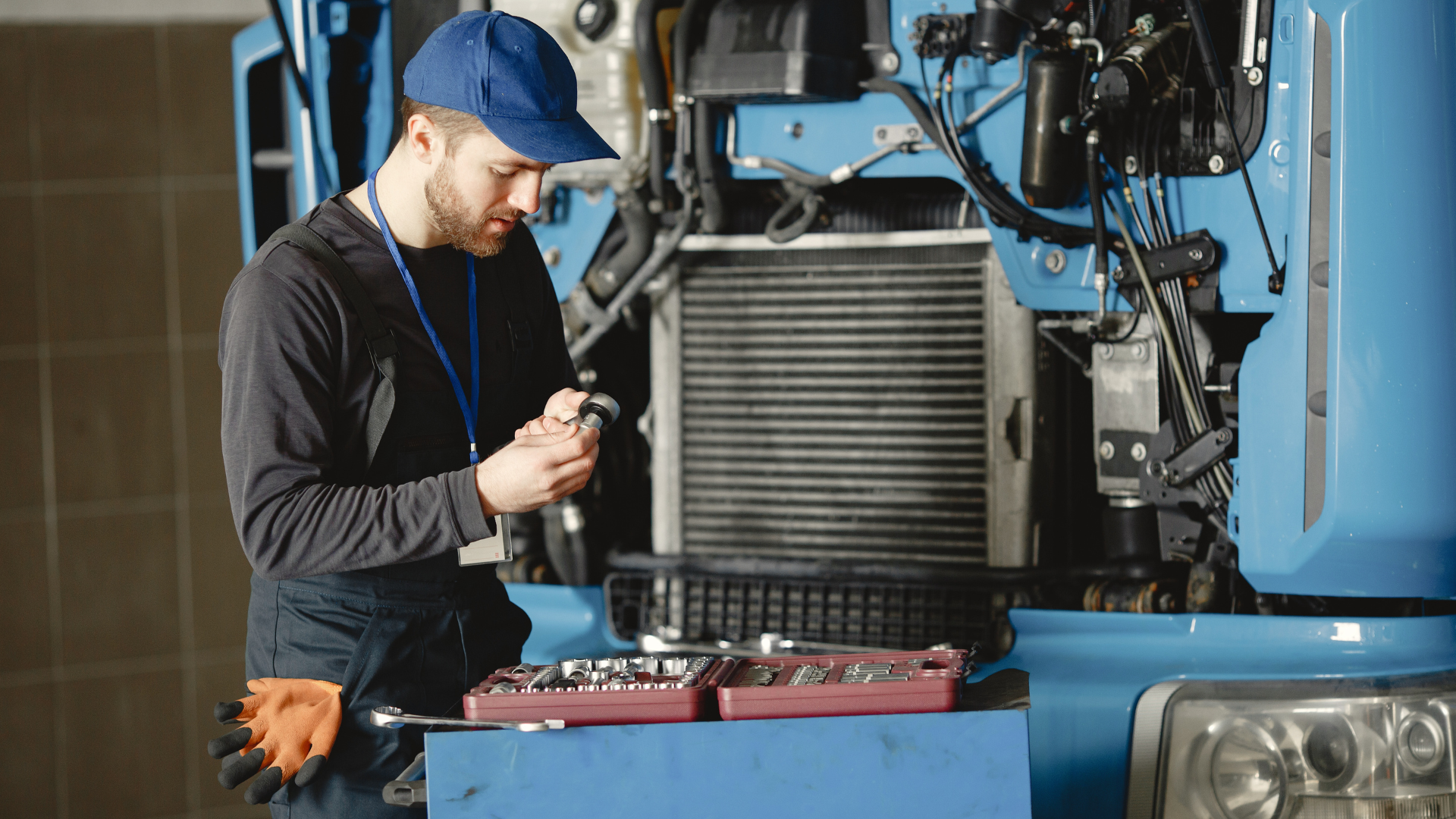
Ensuring safety in trailer repair is paramount for protecting both technicians and drivers. Trailer repair safety encompasses a range of protocols designed to minimize risks and prevent accidents during maintenance and repair activities. By adhering to strict repair safety protocols, mechanics can work more effectively and drivers can have confidence in the reliability of their trailers.
Why Safety Protocols Matter
Safety protocols are essential in trailer repair to protect both the individuals involved and the equipment. These protocols are designed to mitigate the inherent risks that come with handling heavy machinery and performing complex repairs.
For technicians, following clear and well-established repair safety protocols reduces the chance of workplace injuries, ensuring they can perform their duties without unnecessary hazards. For drivers, these protocols provide peace of mind, knowing their trailers are serviced reliably and meet safety standards.
Furthermore, a focus on trailer repair safety can prevent costly accidents on the road, safeguarding not only the drivers but also the cargo they transport. Adopting comprehensive safety procedures for technicians is crucial for maintaining a safe working environment and ensuring the integrity of the repair process.
When your truck’s in distress on the highway, don’t panic – call Fast Service for immediate, expert assistance!
Essential Safety Gear
Wearing the right safety gear is fundamental to maintaining trailer repair safety. Essential safety gear includes items like hard hats, safety goggles, and steel-toed boots, which protect technicians from common workplace hazards. Gloves are also crucial, providing a protective barrier against sharp objects and harmful substances.
High-visibility vests ensure that everyone in the repair area can be easily seen, reducing the risk of accidental collisions. Respirators might be necessary when dealing with fumes or dust, safeguarding respiratory health. Ear protection is vital in environments where loud machinery is in use to prevent hearing damage.
By consistently using the appropriate safety gear, mechanics can significantly decrease the likelihood of injury and create a safer working environment. Ensuring that all team members have access to and correctly use this gear is a critical aspect of automotive repair safety and essential for adhering to effective repair safety protocols.
We recommend you to see this article: Semi Truck Maintenance Checklist: Preparing for Long-Haul Success
Workshop Safety Procedures Overview
Ensuring a safe and efficient workshop environment is foundational to successful trailer repair operations. This involves systematically implementing key safety measures and adhering to well-crafted protocols.
-
Pre-Repair Safety Checks: Begin with comprehensive inspections of the workshop and equipment. Verify that all tools and machinery are in optimal working order and that safety gear is available and in good condition. Inspect trailers for any pre-existing conditions that could complicate repairs. Maintain an organized workspace free of clutter to facilitate a safe and effective repair process.
-
Safe Handling of Tools: Equip technicians with the necessary training to handle tools properly, reducing the risk of accidents. Before use, inspect power tools for damage such as frayed cords. Encourage proper posture to avoid strain injuries and ensure the use of appropriate tools for each task. Keep tools organized to prevent tripping hazards. Always use protective gear when handling sharp or powerful tools to enhance safety.
-
Emergency Response Plans: Develop and implement comprehensive emergency response plans tailored to the workshop’s unique risks. Conduct risk assessments to anticipate possible emergencies like fires or chemical spills. Establish clear procedures and assign roles to team members. Regular drills and training ensure everyone is prepared to act swiftly and effectively, minimizing harm and enhancing workshop safety.
Experience the peace of mind that comes with knowing fast service is just a phone call away. Chat with us here.
Mechanic Safety Checks
Implementing regular safety checks is crucial for maintaining a secure and efficient trailer repair environment. Here’s a checklist to ensure mechanics operate safely:
-
Stay Alert: Always be aware of your surroundings in the dynamic and potentially hazardous workshop environment.
-
Avoid Rushing: Take the time to carefully follow each repair step to minimize mistakes that could lead to accidents.
-
Practice Proper Lifting: Use your legs, not your back, to lift, and seek help with heavy objects to prevent back injuries.
-
Take Regular Breaks: Prevent fatigue by taking scheduled breaks to maintain focus and safety.
-
Communicate Effectively: Coordinate with team members to keep a smooth and safe workflow.
By adhering to these mechanic safety checks, technicians can maintain high safety standards and boost productivity in their daily routines.
We recommend you to see this article: Benefits of On-Site Truck Repair vs. Traditional Shop Services
Driver Safety During Repairs
Driver safety during repairs is a crucial component of overall trailer repair safety. Drivers should remain vigilant and informed about the ongoing repair activities to prevent accidents. One key practice is maintaining a safe distance from the repair area to avoid interference and exposure to potential hazards such as falling objects or sharp tools. It’s also important for drivers to communicate clearly with technicians, ensuring that both parties are aware of each other’s presence and actions.
This can help prevent misunderstandings that might lead to accidents. Drivers should use designated waiting areas and avoid entering the workshop unless necessary and authorized. Additionally, drivers should adhere to any posted safety signs and instructions provided by the repair team.
To get more information about us, follow us on Facebook and Instagram. Or call us right now for a road service on: repairtrucktrailer.com









